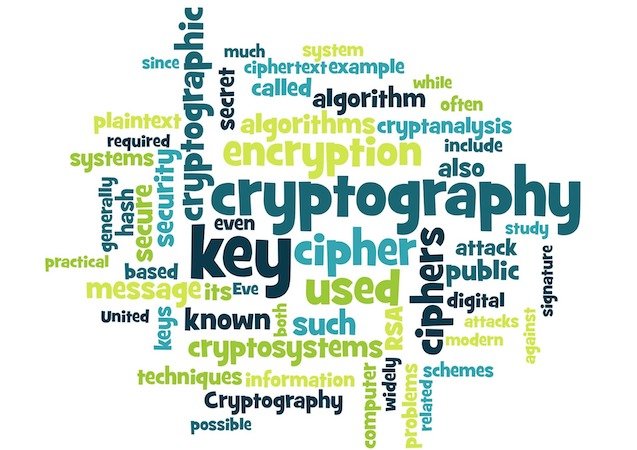Entendendo a criptografia / Understanding cryptography [Part 5]
English version below
PT
Esta é a parte 5 da série de criptografia. Se você não viu as partes anteriores veja abaixo:
Técnicas clássicas
Agora sim vamos entrar de vez nas técnicas de criptografia. Para uma assimilação melhor vamos iniciar pelas técnicas clássicas e mais simples.

Source
Cifra de César
De acordo com a história, esta cifra foi usada pelo Imperador Romano Júlio Cesar. Este algoritmo é o mais antigo que se tem conhecimento que usa operações de substituição. Seu uso naquela época era para fins militares. Enviar mensagens para as tropas com comandos sem que o oponente soubesse. Caso o oponente capturasse um mensageiro no conseguiria ler o conteúdo das cartas.
A cifra de César consiste em substituir cada letra do texto pela letra seguinte. Normalmente é usada a terceira letra subsequente.
Vamos a um exemplo prático. Cada letra vai andar 3 posições, então A vira D, B vira E, e assim por diante.

Se meu objetivo é cifrar a palavra CRIPTOGRAFIA, substituo cada letra pela terceira letra na sequência. Com isso meu resultado vai ser FULSWRJUDILD.
Agora para decifrar isso precisamos saber a chave usada, neste caso 3. Isso quer dizer que para obter o texto claro eu preciso fazer a mesma operação na ordem oposta ou completar as substituições para dar a volta no alfabeto e voltar para a letra original. Isso pode ser feito das duas formas, posso tanto voltar 3 posições em cada letra ou avançar 23. Nos dois casos vou chegar novamente em CRIPTOGRAFIA.
Tente você agora e decifre o texto abaixo:
Xlmx x nf mxqmh vbyktwh vhf t vbykt wx vxltk. Lx ohvx xlmt exgwh xllt fxgltzxf x ihkjnx vhglxznbn wxvbyktk xet. Itktuxgl! Lbzt xf ykxgmx vhf lxnl xlmnwhl!
Conseguiu? Certeza que você no procurou na internet um programinha para isso?
Se sua resposta foi positiva então você está pronto para seguir em frente. :)

Source
Cifradores monoalfabéticos
Naquela época a cifra de César pode ter sido uma ideia genial, mas hoje em dia é algo bem simples. A cifra de César é um cifrador monoalfabético. Estes cifradores consistem em qualquer permutação de letras com o objetivo de esconder um texto. No caso da cifra de César era usado uma permutação de 3 letras, como mostrado no exemplo acima, mas como você já deve ter percebido isso funciona com qualquer valor até 26, que são os possíveis valores correspondentes as letras do alfabeto.
Se por algum acaso você se deparar com esse nome, cifrados monoalfabéticos, você já vai saber do que se trata.
Qual a importância desse termo para a criptografia? Descubra no próximo texto! :)

ENG
This is the fifth part of the cryptography series. If you have not seen the previous parts see below:
Classic techniques
Now let's get into cryptography techniques. For a better assimilation we will start with the classic and simpler techniques.

Source
Caesar Cipher
According to history, this figure was used by the Roman Emperor Julius Caesar. This algorithm is the oldest that is known to use substitution operations. Its use at that time was for military purposes. Send messages to the troops with commands without the opponent knowing. If the opponent caught a messenger he could not read the contents of the letters.
The caesar cipher is to replace each letter of the text with the next letter. The third subsequent letter is usually used.
Let's take a practical example. Each letter will walk 3 positions, then A turns D, B turns E, and so on.

If my goal is to encrypt the word CRYPTOGRAPHY, I replace each letter with the third letter in the sequence. With that my result will be FUBSWRJUDSKB.
Now to decipher this we need to know the key used, in this case 3. This means that to get the clear text I need to do the same operation in the opposite order or complete the substitutions to go around in the alphabet and go back to the original letter. This can be done in both ways, I can either go back 3 positions in each letter or advance 23. In both cases I will get back to CRYPTOGRAPHY.
Try it now and decipher the text below:
aopz pz h jpwolyalea dpao aol jhlzhy jpwoly. pm fvb hyl ylhkpun aopz tlzzhnl pz iljhbzl fvb ohcl illu hisl av kljpwoly pa. jvunyhabshapvuz! jhyyf vu dpao fvby zabkplz!
Got it? Sure you did not look on the internet for a program?
If your response was positive then you are ready to move on. :)

Source
Mono-alphabetic Ciphers
At that time the cipher of Caesar may have been an ingenious idea, but nowadays it is quite simple. The Caesar cipher is a monoalphabetic cipher. These ciphers consist of any permutation of letters in order to hide a text. In the case of Caesar's cipher, a permutation of 3 letters was used, as shown in the example above, but as you may have realized this works with any value up to 26, which are the possible values corresponding to the letters of the alphabet.
If by chance you come across that name, monoalfabetical ciphers, you'll know what it's all about.
What is the significance of this term for cryptography? Find out in the next article! :)







Muito interessante! Vou ler os demais! Fascinante tema.
Obrigado por acompanhar o/
excelente contribuição para a nossa comunidade, continue com o trabalho! Parabéns
ptgram power | faça parte | grupo steemit brasil
Obrigado pelo comentário!
Isso é muito fascinante. Infelizmente ainda não tive tempo de ler todos os artigos anteriores da série, mas para quem quer entender de Blockchain a criptografia é um dos aspectos essenciais, então mãos a obra.
ptgram power
Sem dúvida meu caro, tudo gira em torno de criptografia.
Obrigado pelo comentário!